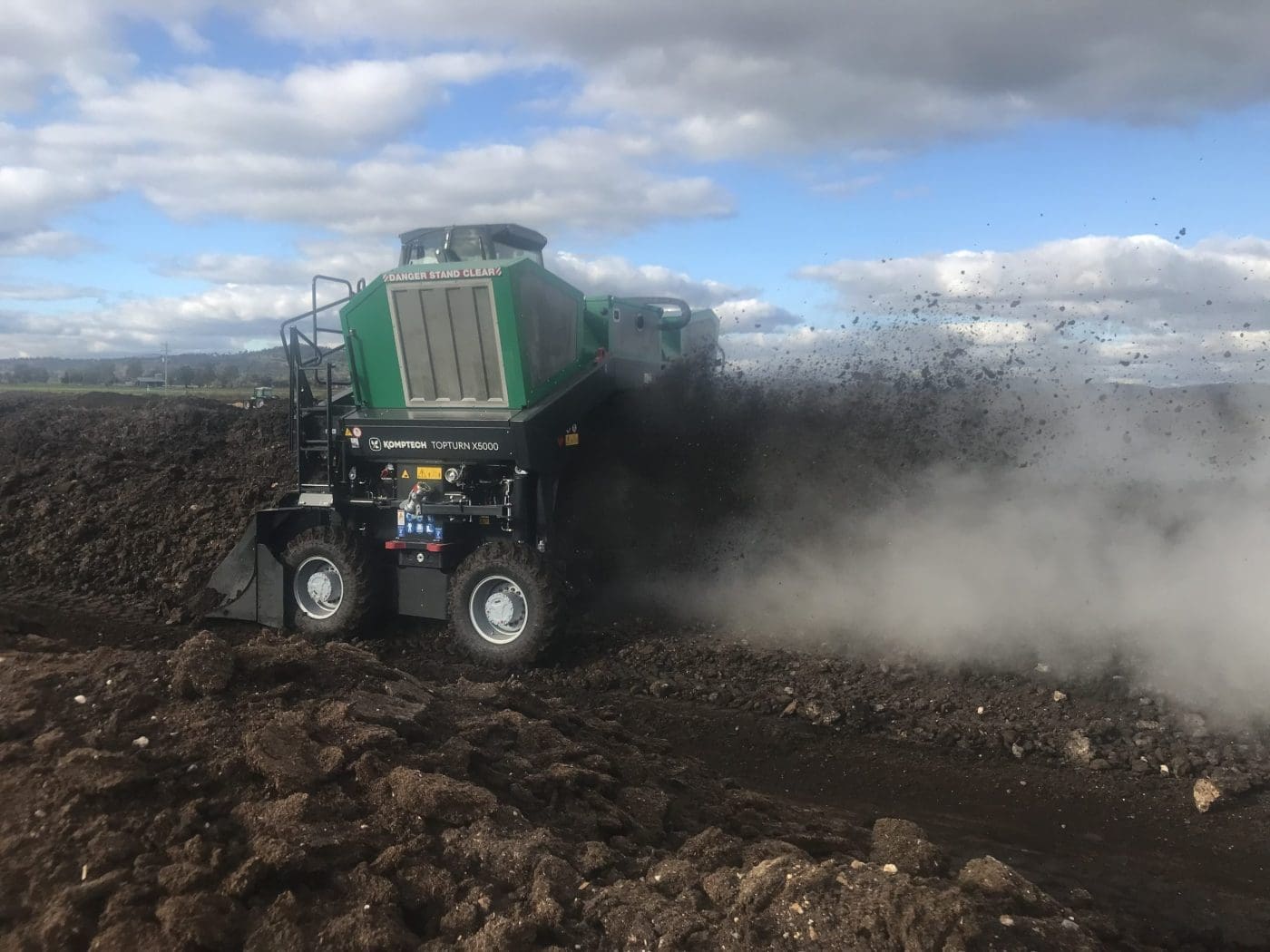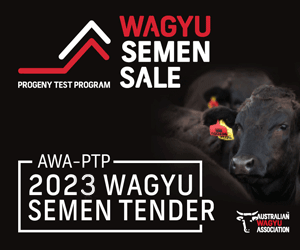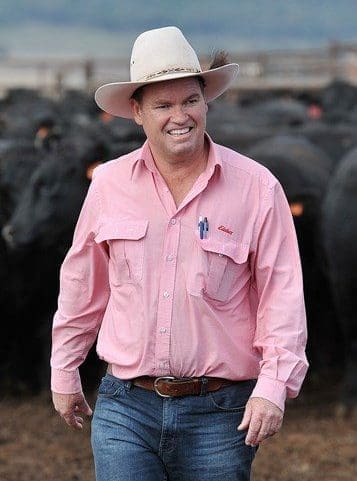
Elders has made a significant investment into manure processing at its Killara feedlot. Photo: Andrew Talbot
ELDERS’ Killara feedlot has made a significant investment into its manure management, with the purchase of new processing equipment and long-term plans to make bags of manure available in the company’s shops.
The company has purchased a large Volvo loader, a Komptech 5000 over the top turner, which can turn about 1000m3/hour and a Komptech Nemis 2700 screener, which sifts out gravel and other contaminants. The screen is 14mm, rather than the standard 25mm.
Based near Quirindi, New South Wales, in the prime cropping area of the Liverpool Plains – Killara has been selling and using its manure for many years. The latest investment will bring all the processing in-house, making sure it is more streamlined and has a higher concentration of manure in the end product.
Killara is currently selling the manure by truckload to other farms in the area, with plans to put in a bagging facility in the next two years and sell 25kg bags for garden fertiliser.
General manager Andrew Talbot said good manure management was an integral part of the feedlot operations and was an opportunity to diversify the income of the business.
“It is well known that too much manure in pens significantly impacts cattle performance, so we need to continue cleaning them regularly,” Mr Talbot said.
“But one of the problems we have always had is that the equipment can’t process the manure quick enough, the onsite stockpile grows and becomes a problem. With this new investment, we have gone from manure being a problem and having potential impacts on environmental licenses to manure becoming a high value product.
“In these tough feedlot times, it has been really exciting to be able to broaden the income stream for the business away from buying and selling cattle.”
Mr Talbot said with the feedlot producing about 60,000T of manure each year, significant infrastructure was needed to process it.
“We didn’t want to leave any manure on site for longer than 10 to 12 weeks, so we needed to have a sizeable investment in the plant to do that,” he said.
“This level of rolling plant will allow us to turn the manure half-a-dozen times before going through the screener – which will give us a really high-quality product.”
Reducing reliance on synthetic fertiliser
Alongside the Killara Feedlot, Elders runs 1050ha of farming country which grows 100pc of the feedlot’s corn silage requirements.
Mr Talbot said manure had been a big part of the farming operations for many years and had decreased the reliance on synthetic fertilisers.
“We have seen a significant upside in our crop yields as a result of the continuous application of this product year-after-year,” he said.
 “Through the drought years of 2018 and 2019 we were able to get a really good plant population and growth compared to places that didn’t have the manure application we did. We put that down to the continued application of manure more than our farming expertise.”
“Through the drought years of 2018 and 2019 we were able to get a really good plant population and growth compared to places that didn’t have the manure application we did. We put that down to the continued application of manure more than our farming expertise.”
Mr Talbot said the operation has seen an uptake in demand for manure from farmers looking to decrease their reliance on synthetic fertiliser.
“At first the interest was because of the cost of urea vs the cost of manure,” he said.
“But in more recent times, people are starting to swing over because of the benefits of organic matter in the soil and the impact it has on soil carbon.”
Peter McKenzie, from McKenzie Ag Consulting, is Killara’s agronomist. He said the use of manure on the Killara’s cropping operation has had many benefits over the years.
“The feedlot manure typically runs about 30pc organic matter, which helps soil structure and helps soil-water holding capacity,” Mr McKenzie said.
“Because of our manure use, we don’t use any starter fertiliser and that is because of the amount of phosphorus and potassium in the manure.
“There are a lot of micronutrients in it as well, which don’t always give a lot of credit for crop health. We always pay a lot attention to the macronutrients, but we don’t pay a lot of attention to the micronutrients which come for free with the manure.”
Potential carbon benefits of manure
Mr McKenie said with the wide array of nutrients in the manure, it had the potential to help the sequestration of carbon in the soil.
“Of the organic matter in the manure, roughly 58pc of it is organic carbon – so when you talk about storing carbon in the soil, the nutrients in manure are important,” he said.
“In-terms of emissions, the use of manure is certainly a good story.”

